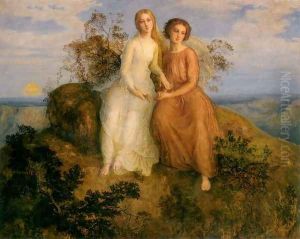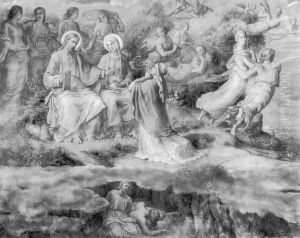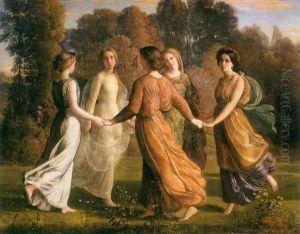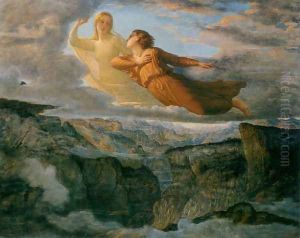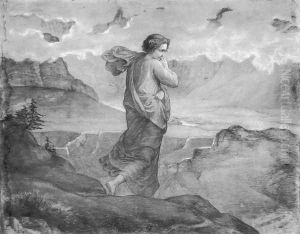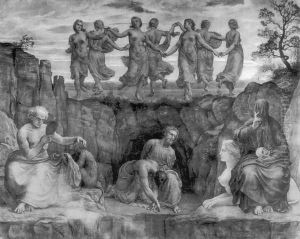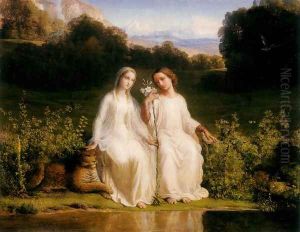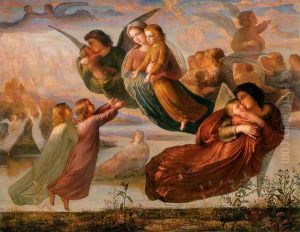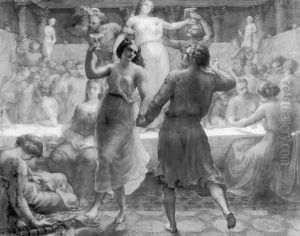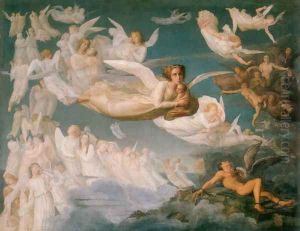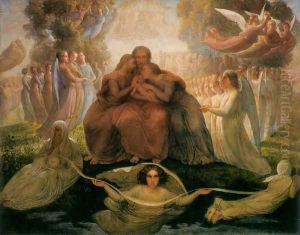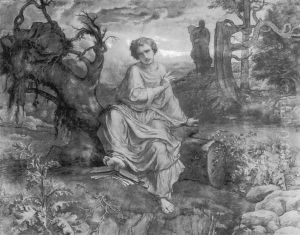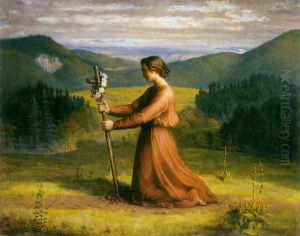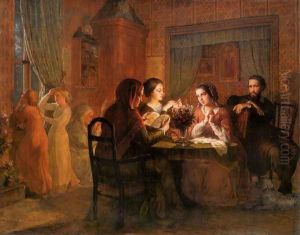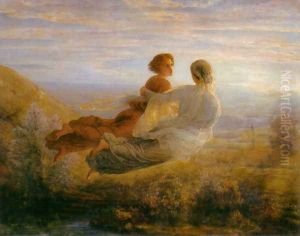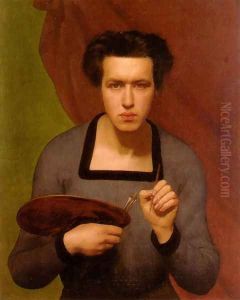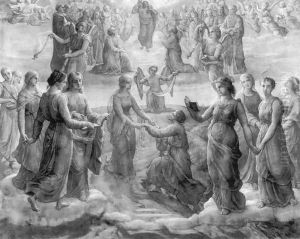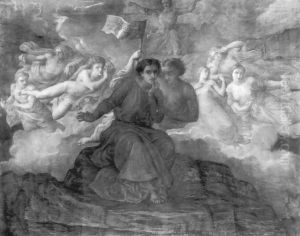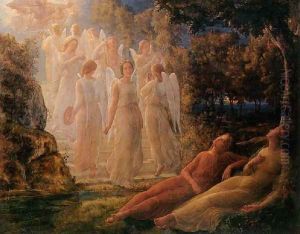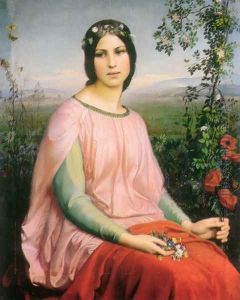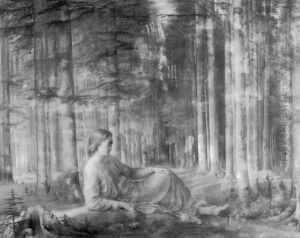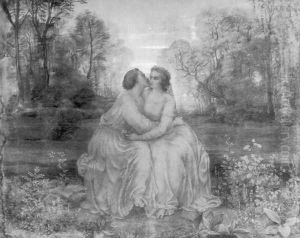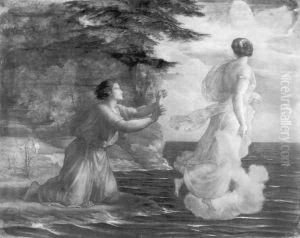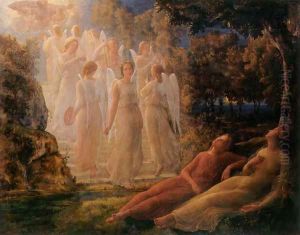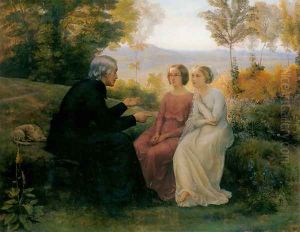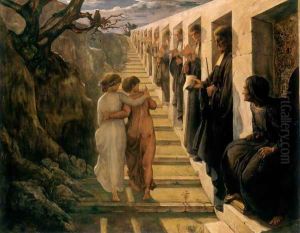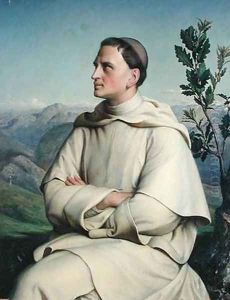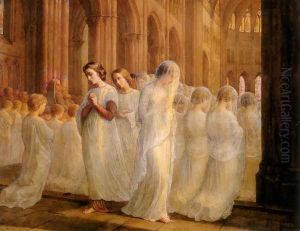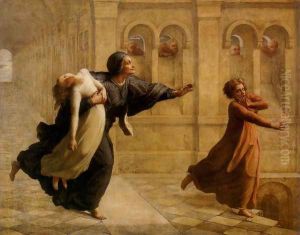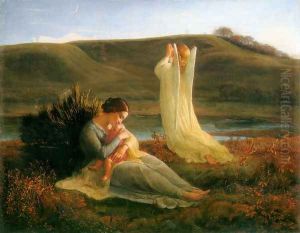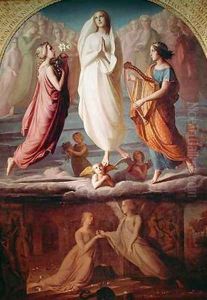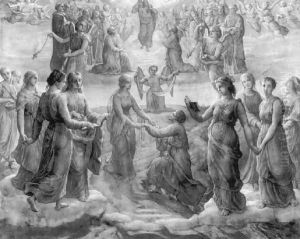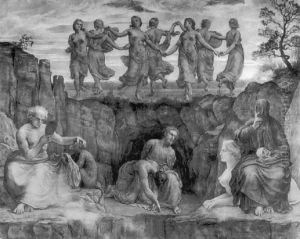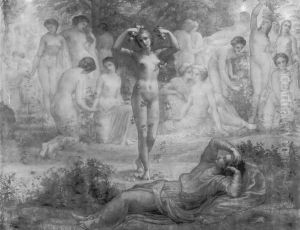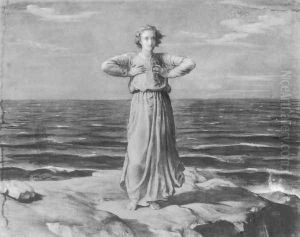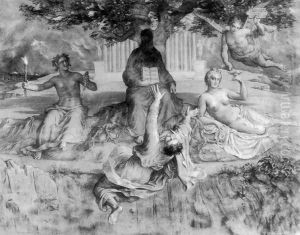Anne-Francois-Louis Janmot Paintings
Anne-François-Louis Janmot, born on May 21, 1814, in Lyon, France, was a French painter and poet whose work is often associated with the Pre-Raphaelite movement and French Romanticism. He began his education at the Royal School of Fine Arts in Lyon before moving to Paris to study under Jean-Auguste-Dominique Ingres, who was a significant influence on Janmot's early style.
Janmot is best known for his epic poetic cycle, 'The Poem of the Soul', which consists of 18 paintings accompanied by commentaries in verse. This ambitious project occupied a large part of his artistic career, beginning in the 1830s and continuing until his death. The cycle reflects Janmot's deep religious beliefs and philosophical interests, exploring themes of life, death, the soul, and the afterlife in a highly symbolic and visionary manner. The first series of these works was exhibited at the Salon of 1855, where they received mixed reviews from critics who found them either visionary or obscure.
Throughout his career, Janmot remained committed to his spiritual and philosophical ideals, choosing subjects that reflected his inner contemplations rather than the changing artistic trends of his time. Although he painted portraits and landscapes, it is the 'Poem of the Soul' cycle that remains his most significant contribution to art history.
Janmot was also involved in the restoration of religious paintings and the creation of religious frescoes, contributing to the renewal of religious art in France during the 19th century. He served as a professor at the École des Beaux-Arts in Lyon, and his influence extended to his students there.
Despite his dedication and the originality of his work, Janmot did not achieve widespread recognition during his lifetime. However, posthumously, his work has been reassessed, and he is now recognized for his unique contribution to French art, particularly in the context of the spiritual and symbolist currents of the 19th century. Anne-François-Louis Janmot passed away on June 1, 1892, in Lyon.
